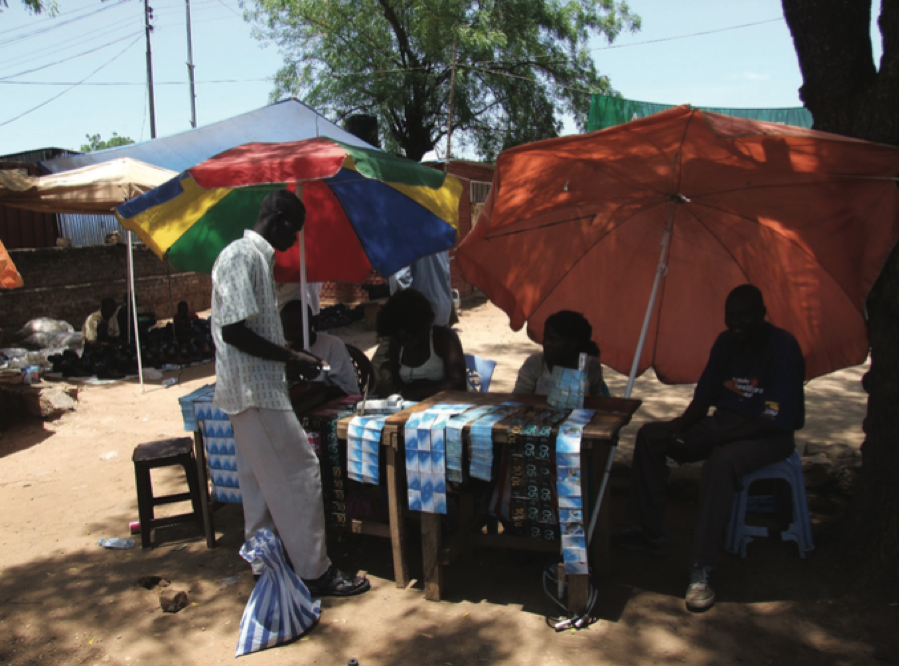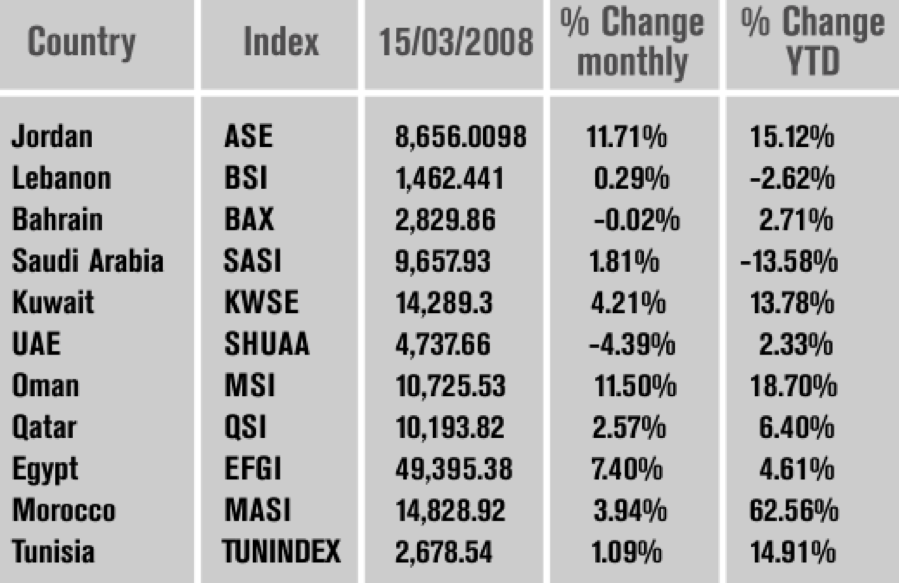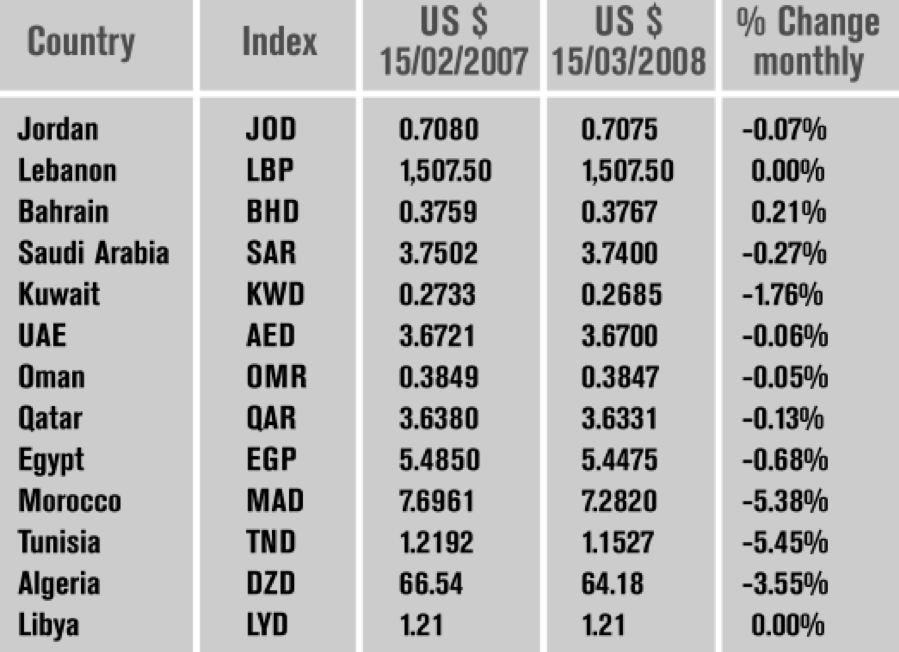“The MENA region has not made the best use of its accumulated human capital, unemployment is high among graduates and the education system in the region is not fully equipped to produce graduates.” These are just two of the many damming conclusions made in a recent World Bank report, The Road Not Traveled: Education Reform in the Middle East and North Africa. The World Bank report also showed that right across the region the education system is in dire straits.
The World Bank’s Knowledge Economy Index, which incorporates the economic incentive regime, innovation, education and the information infrastructure, reveals that almost all the MENA countries fall below the middle range of the index. The highest scoring country in the MENA region was the UAE, which was below Chile and Estonia.
The Gulf countries, helped along with a large current account, have recognized the urgency of their educational situation and have put their vast surplus capital into attracting foreign educational institutions to set up in their region. This has occurred at a time when many educational institutions in Europe and America are seeing a financial need to operate much like the knowledge that they produce: globally.
Educational institutions are now being transformed from their local establishments into trans-national institutions. The names of many universities that attach them to a place — The University of Georgetown, the University of California, The London School of Economics, the London School of Business and so on — will soon lose their sense of locale as big universities are now looking to have several campuses spread throughout the globe.
The reason for this trans-nationalization of educational institutions is that both the receivers of these institutions and the institutions themselves have recognized that the world of higher education has become an international market. As Professor Tim Wilson, vice-chancellor of the University of Hertfordshire in Britain, said, “Students are increasingly seeing themselves as customers and their time at university as an investment.” Attracting students from around the globe to educational institutions in Europe and America is no longer seen as economically viable.
Internationalizing instruction
To become more competitive universities in Europe and America are now not trying to attract students from aboard to travel to them but instead the institutions themselves are going to these international students through setting up campuses throughout the world.
Wilson believes that, despite 13% of students in the UK coming from outside the EU, universities still have to become more competitive in both national and global higher education markets: “Internationalization does not just mean creating a multicultural community here in the UK on British terms. It must mean establishing a network of partners on a global basis. To be truly international universities need to do more than invite international students on to our campuses.”
The University of Hertfordshire now has a network of partners established in colleges in Malaysia, Greece, China, Singapore, Germany, Russia, Hungary the Caribbean and Canada, with this network growing each year. All these colleges “teach Hertfordshire degrees, delivering British style education.” This policy has paid off for the British institution with their international franchise income exceeding $2 million annually.
In the Middle East, Qatar and United Arab Emirates have so far led the way in encouraging foreign institutions, similar to the University of Hertfordshire, to set up campuses in their countries. In Doha, Qatar, an initiative by the Qatar Foundation for Education, Science and Community Development created a 14 square kilometer ‘Education City’.
In ‘Education City’ five American Universities have set up campuses including Georgetown and Cornell Medical School. The financial incentives for the American and European educational institutions are sizable and obvious. The Cornell medical school has been granted $750 million over 11 years by the Qatar Foundation to spend on its campus.
However, it is also the exorbitant fees these institutions can charge that have driven so many to create campuses outside their own localities. For example, the Georgetown University School of Foreign Service in Qatar will cost a student nearly $36,000 an academic year, the same as one would pay in Georgetown.
Dubai has seen similar phenomena but is trying a slightly different approach in linking up its newly created Dubai International Financial Centre (DIFC) with universities. Two of the best business schools in Europe — CASS and the London Business School (LBS) — have both set up Executive MBA’s at the DIFC.
Dr. Kevin Dunseath, LBS Director in Dubai, thinks the advantage for Dubai in attracting institutions like LBS is a wider array of options for local students in terms of the courses they are able to access without the need to go abroad and also the ability of the school to attract skilled staff and retain them regionally.
The attraction Dubai held for LBS was its location and nature as a regional business hub and also because the Dubai authorities were very welcoming and encouraging.
Some fail the grade
Dunseath pointed out that “there have been stories already of universities setting up overseas and collapsing — for instance the University of Southern Queensland in Dubai and New South Wales in Singapore.”
The collapse of these universities occurred at a great cost — financially and in terms of reputation. Hence, Dunseath cautioned “it is initially very tempting to think let’s go global and set up a campus but there are significant risks in so doing: if you dilute your brand you are finished, this is the most important thing to protect.”
The challenge to deliver the same quality of education in institutions setting up overseas campuses that match their home institution has proved to be the most difficult in the trans-nationalization of higher education institutions. “There is a lot of suspicion on behalf of our clients as to institutions that hire locally because the clients will say… it may be the same name but is it the same product? [By flying our faculty from our main base] this is our assurance that it is the same product,” Dunseath asserted.
Where to source staff from for the LBS’ operation in Dubai was also the reason that LBS set up a ‘center’ rather than a larger-scale campus, as the business school felt it was unable to ensure that it could guarantee its quality by employing locally. Dunseath emphasized that “the key for us was the maintenance and enhancement of our brand.”
Thus the MBA program that is offered is taught exclusively by LBS faculty, or, as Dunseath remarked, “It is not a fake Rolex.”
Local investors are also to be side-stepped he warned, “as the danger is that you end up with two different agendas: the academics on one side who are concerned about standards and quality and on the other hand you have the local investors who are mainly concerned with a return on investment.”
The London-Dubai Executive MBA offered by the LBS is very much a course that illustrates the changing and more mobile nature of higher education. LBS being in London has a major advantage over its North American rivals as the flight is only seven hours from Dubai to London. Subsequently, flying faculty staff from the London campus to the center in Dubai is far more feasible for British and European institutions than their American rivals.
This may be a major competitive advantage if the debate surrounding the quality of education actually delivered in these externally based institutions intensifies as their numbers continue to increase. As Dunseath attested, “this is not a local MBA program but a global one and is aimed at educating global leaders who operate around the world. Some of the students fly in every month to attend the classes in Dubai and the second half of this course is in London.”
The global nature of higher education is fully embodied by the making up of the course in which the seventy students represent thirty different countries. However, this global composition illustrates the difficulty that still lays ahead for the MENA region in increasing the skill base of its citizens, as only 35% of the course is filled by students from the Middle East and North Africa. This is a world where the local is completely taken out of higher educational facilities. Dunseath in particular was eager to stress that the London Business School had as little as possible in way of connections with local investors, local higher education institutions, locally skilled staff or even ‘local’ customers.
Adding or subtracting?
There is little doubt that institutions such as LBS and others setting up in the Middle East will benefit hugely financially and, if they are diligent, in terms of reputation as well. How much the Middle East will benefit from these institutions is yet to be seen. There is a risk that they could drown out any local efforts at educational institutional building and block those that cannot afford the fees from accessing quality higher education.
However, it is possible these institutions will stimulate higher education regionally by producing highly skilled citizens who can then drive the education system on. What is certain is if the region wants to achieve sustainable growth that is less reliant on foreign skills and outside institutions, the World Bank Knowledge Economy Index must be turned around.





























